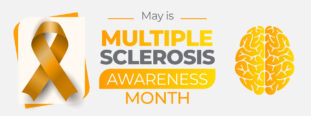Is it safe to breastfeed?
An important issue for women with multiple sclerosis (MS) who are planning to have children is whether or not to breastfeed. Most women stop treatment during pregnancy because MS drugs can potentially harm the fetus. But nature provides its own form of protection against relapses, presumably because of the hormonal changes that occur during pregnancy.
The situation changes once the baby is born. In the first 3-6 months after childbirth, there is an increased risk of having a relapse. So many doctors advise women to re-start their medication within 2-4 weeks after giving birth to provide some protection against this increased risk – meaning that they should forego breastfeeding.
So there’s a difficult either/or situation: Either you start treatment right away and give up breastfeeding, or you breastfeed for 6-12 months before re-starting your MS medication and run the risk of having a relapse.
However, there’s a great deal of grey in this black-and-white choice. So let’s look at some of the assumptions underlying the treatment re-start vs. breastfeeding debate.
It is fairly well established that there is a higher risk of having a relapse in the 3-6 months after giving birth. This risk has been estimated to be about three times higher than in the year before you got pregnant (Nelson and colleagues. JAMA 1988;259:3441-3443).
In absolute terms, about 1 in 3 women will have a relapse in the 3-6 months following childbirth. This is the statistical risk for an overall population; your personal risk will largely be determined by how active your MS was in the year before you got pregnant.
Does breastfeeding reduce that risk? Here the data are mixed. In one study, the risk of relapse was five times higher in women who did not breastfeed (even though many re-started treatment right away) (Langer-Gould and colleagues. Arch Neurol 2009;66:958-963). Other studies have found that the risk of relapse is the same whether you breastfeed or not (Portaccio and colleagues. Neurology 2011;77:145-150; Nelson 1988).
If breastfeeding is protective, is this effect sustainable? New information from the 2012 American Academy of Neurology annual meeting suggests that it’s not. In a study of women who breastfed exclusively (i.e. no infant formula or solid food) for at least two months, the risk of relapse in the six months after childbirth was indeed lower (11%) compared to women who did not breastfeed (34%) (Hellwig et al. AAN 2012; abstract P06.186). However, once women stopped exclusively breastfeeding, their risk of relapse went up. So in months 7-12 postpartum, one-third of women who had breastfed now had a relapse (compared to 8% of those who didn’t breastfeed). What this means is that breastfeeding delays – but doesn’t prevent – relapses. If you’re going to have a relapse, it’s going to happen sooner or later.
So should you start treatment right away to prevent that relapse? Another new study presented at the 2012 AAN meeting suggests that treatment may not be that protective. In the two years after childbirth, women who resumed treatment with an interferon-beta or glatiramer acetate within two weeks of childbirth did not have a lower risk of relapse compared to those who resumed treatment later (Beaber et al. AAN 2012; abstract P06.192). This finding should be interpreted with some caution, however, since it’s probably fair to assume that the women who started treatment earlier had more active disease and had a higher risk of relapse.
Of course this weighing of the pros and cons doesn’t factor in the benefits of breastfeeding to mother and baby. Here the results are quite clear: babies who breastfeed take in some of their mother’s immune factors, so they are less likely to develop gastrointestinal and respiratory infections (Fisk and colleagues. Matern Child Nutr 2011;7:61-70; Ladomenou and colleagues. Arch Dis Child 2010;95:1004-1008).
The decision whether or not to breastfeed is a very personal one. But it you’re faced with this decision, keep in mind that there’s no right or wrong. The best option will depend on your particular circumstances and preferences.
Share this article
Facebook Twitter pin it! Email
Related Posts
Back





